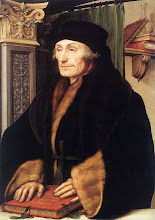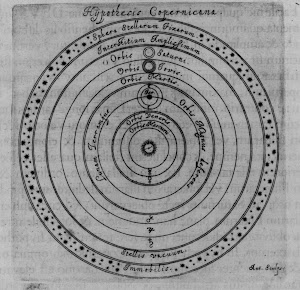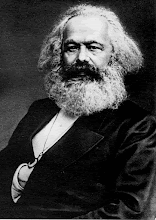 How does Laura Cereta explain her intellectual interests and accomplishments? Why were Renaissance women rarely taken seriously in their quest for educational opportunities and recognition for their intellectual talents? Were any of those factors unique to the Renaissance era? Can Cereta be described as a “feminist”? Why or why not? (page 329)
How does Laura Cereta explain her intellectual interests and accomplishments? Why were Renaissance women rarely taken seriously in their quest for educational opportunities and recognition for their intellectual talents? Were any of those factors unique to the Renaissance era? Can Cereta be described as a “feminist”? Why or why not? (page 329)
Thursday, September 25, 2008
EXTRA CREDIT POST: “A Woman’s Defense of Learning”
 How does Laura Cereta explain her intellectual interests and accomplishments? Why were Renaissance women rarely taken seriously in their quest for educational opportunities and recognition for their intellectual talents? Were any of those factors unique to the Renaissance era? Can Cereta be described as a “feminist”? Why or why not? (page 329)
How does Laura Cereta explain her intellectual interests and accomplishments? Why were Renaissance women rarely taken seriously in their quest for educational opportunities and recognition for their intellectual talents? Were any of those factors unique to the Renaissance era? Can Cereta be described as a “feminist”? Why or why not? (page 329)
Wednesday, September 24, 2008
Machiavelli: "Is It Betther to be Loved than Feared?"
 What does Machiavelli have to say about being loved rather than feared? How do his theories in this regard make his politics modern and distinguish his advice from Greco-Roman notions of good rulership? Are Machiavelli’s comments in the excerpt at all relevant to today’s democratic politics? (page 325)
What does Machiavelli have to say about being loved rather than feared? How do his theories in this regard make his politics modern and distinguish his advice from Greco-Roman notions of good rulership? Are Machiavelli’s comments in the excerpt at all relevant to today’s democratic politics? (page 325)Monday, September 8, 2008
“A Feminist Heroine: Christine de Pizan or Joan of Arc”
 Is Christine de Pizan’s poem about the triumphs of Joan of Arc a “feminist” literary work? Why or why not? (Define “feminist.”) What are the religious references and allusions in the poem? What are the references to the classical world? In subject matter, is there anything “modern” in the poem? Does the work better reflect the waning Middle Ages or the waxing Renaissance? How and why? (page 295)
Is Christine de Pizan’s poem about the triumphs of Joan of Arc a “feminist” literary work? Why or why not? (Define “feminist.”) What are the religious references and allusions in the poem? What are the references to the classical world? In subject matter, is there anything “modern” in the poem? Does the work better reflect the waning Middle Ages or the waxing Renaissance? How and why? (page 295)
Subscribe to:
Comments (Atom)




























